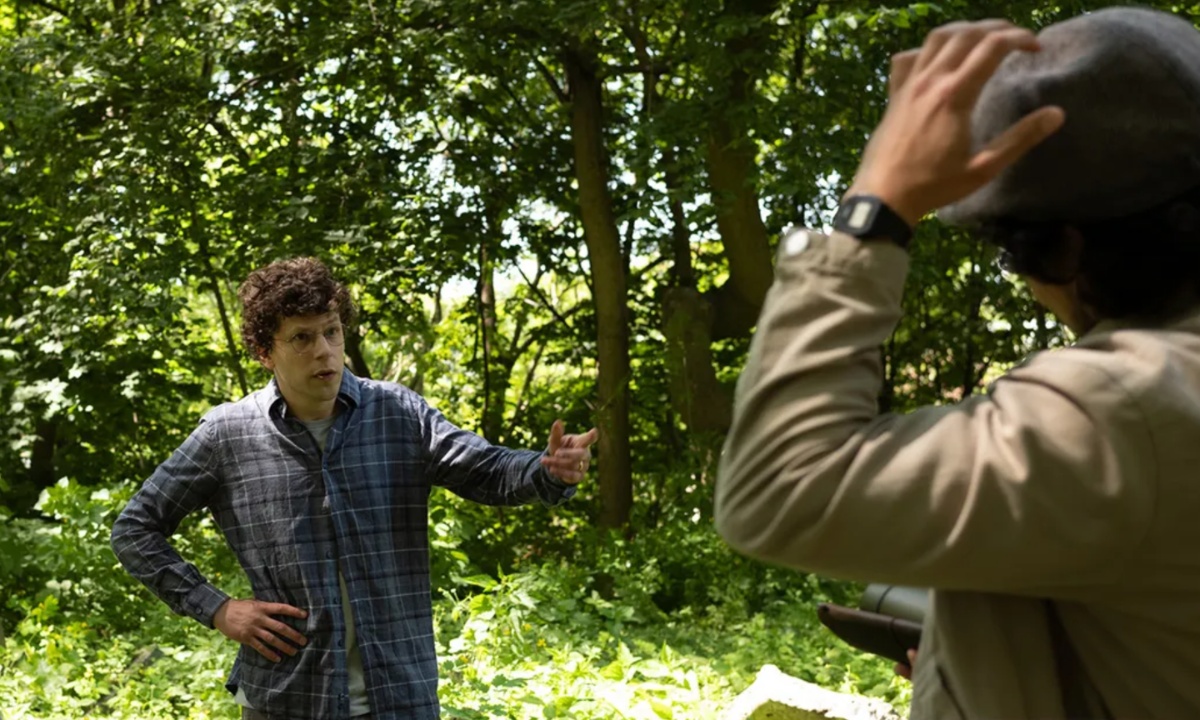As Jesse Eisenberg delved into the filming of his latest project, A Real Pain, he quickly discovered a contrast in working styles between himself and his co-star, Kieran Culkin. This marked Eisenberg’s second directorial venture and the first where he would also take on an acting role. In contrast, Culkin was stepping into his first role since concluding a four-season run on HBO’s Succession, riding on the wave of that creative success.
Months of meticulous planning for the expansive shoot in Poland with cinematographer Michal Dymek (EO) went somewhat awry. Eisenberg, armed with a carefully crafted shot list, found much of it scrapped due to Culkin’s unique approach to acting. “He is an unusual actor—he works really, really well as a spontaneous actor,” notes Eisenberg. Culkin, reflecting on his Succession experience, adds with a laugh, “This was set-up 12 and take 40-something. I’m like, What is this?”

The distinctive on-screen chemistry between Culkin and Eisenberg, reflecting their off-screen banter, is a notable feature of A Real Pain, making its debut at Sundance. The film showcases the nuanced and humorous performances of the pair as cousins navigating different life stages, traveling to Poland to honor their late grandmother. Their journey, filled with bickering and reminiscing, unfolds against the backdrop of intergenerational trauma, with visits to the Majdanek concentration camp and their grandmother’s home.
The film’s origins trace back to three sources: a short story penned by Eisenberg, a play inspired by his impactful visit to Poland, and an online ad titled “Auschwitz Tours With Lunch.” Eisenberg was intrigued by the ironic juxtaposition of exploring family history horrors while maintaining certain creature comforts during travel.
Throughout A Real Pain, Eisenberg maintains a delicate balance in tone, addressing the profound backdrop of the Holocaust without adopting a sanctimonious approach. The film delves into themes of suffering, guilt, and luxury through the lives of David (played by Eisenberg) and Benji (played by Culkin).

Eisenberg drew on personal experiences in Poland, connecting with his family and cultural history. The film’s ability to shoot in the country was facilitated by producer Ali Herting’s connections, allowing them access to Polish company Extreme Emotions. The inclusion of specific locations, such as the house his family fled in 1938, adds a personal touch to the narrative.
The tour experience, an uncomfortably familiar scenario for travelers, becomes a significant element of the film. Jennifer Grey and The White Lotus’s Will Sharpe join Culkin and Eisenberg, creating an odd social dynamic within the temporary social circle. Sharpe, immersing himself in the role of a tour guide, added authenticity to the experience through improvisation and knowledge of the presented locations.
For Eisenberg, A Real Pain marks a departure from his previous work, including his debut feature, When You Finish Saving the World. Reflecting on the feedback from his first film, he acknowledges the need to make certain aspects clearer for a broader audience. Additionally, taking on a leading role in his own movie posed its own challenges, with self-critique becoming an unavoidable aspect of the process.
Culkin’s dynamic and quietly heartbreaking performance in A Real Pain follows his success on Succession, for which he recently won an Emmy. The on-screen chemistry between Culkin and Eisenberg becomes the film’s heartbeat, transcending intimate disagreements to explore deeper themes of self-awareness, tragedy, and personal growth.
Culkin’s energetic presence on set seemingly influenced Eisenberg’s directorial approach, leading to a unique creative synergy between the two actors. Eisenberg reflects on this, likening it to the classic Hollywood stories of directors falling in love with their ingenues, expressing a profound connection with his co-star.


